WATERVILLE — Former Republican Gov. Paul LePage was met with silent students protesters holding signs and engaged in at-times heated debate with students during a speech and question-and-answer event Wednesday night at Colby College.
LePage, who was Waterville’s mayor from 2004-2011, was invited to campus by the Colby College Republicans to give a talk bearing the name of his old campaign slogan, “People Before Politics.” About 50 students protested the event by silently holding signs — mostly with controversial quotes that have been attributed to LePage — in the atrium of the Diamond Building, where the event was held, as well as around the perimeter of Ostrove Auditorium while he spoke.
During an approximately 20-minute speech and wide-ranging 40-minute question-and-answer period, LePage teased that he may run for governor in 2022, as he has done previously.
“The deal I made with my wife is very simple,” he said. “If I buy her a pickup truck and I learn to like country western, she won’t stand in my way. I have bought her the pickup truck and I’m starting to listen to country western.”
The comment drew some applause and an audible, “Oh, boy.”
After the event, leaders of the Colby College Republicans said they faced pressure from faculty members and other students to cancel the event earlier this week.
“I think (LePage’s visit) definitely strengthened the support system Colby has in place for events like this,” said Meredith Allen, a junior and co-president of the Colby College Republicans. “There were a lot of flaws in the system that we were able to work out given the situation, (such as) faculty and students encouraging us to cancel the event and being able to build a framework to respond to potential disruptions of the event because Colby is trying to be supportive of free expression. I think it was a good showing of how both sides can express their views civilly, and we’re looking forward to having more of that in the future.”
There were at least two security guards and a sheriff’s deputy on duty at the event, which nearly filled the 180-seat auditorium.
Student protesters said they took issue with many of LePage’s stances and the values that he espouses.
“He practically embodies everything we strive to avoid here,” said Cam Woods, a junior and member of the Colby Democrats who protested the event Wednesday. “He’s spoken of racist views, of using violence as a means of political action, of blowing up the newspapers and my (protest) sign specifically references something he said about black people coming up on the highway and killing Mainers. This racism is deeply embedded in his policies and it’s been really harmful to this state. At Colby, we want to make it very clear that that is not what we stand for at all. We are trying to build a community of inclusion and dialogue where we feel like he is really dividing people and shutting down conversations with his racism.”
LePage declined to speak with the reporter Wednesday night following the talk, saying, “I don’t want the opportunity for you to misquote me.”
LEPAGE’S TALK
LePage started his speech by saying he is a product of the environment he grew up in, which included physical abuse by his family, sexual abuse from the church and periods of time where he lived in cars, cellars and hallways, and surfed the couches of his peers as a pre-teen.
He criticized the media numerous times for portraying him in ways he said were inaccurate.

During a question-and-answer session Wednesday at Ostrove Auditorium at Colby College, junior Rachel Powers pointedly asks Paul LePage about his use of racially charged language during his tenure as Maine governor. Morning Sentinel photo by Michael G. Seamans
In a heated back-and-forth about his views on asylum seekers, LePage said that he opposed the practice because unlike legal immigrants to the country, asylum seekers are not required to be medically cleared before leaving their country; that 30% of asylum seekers are politically oppressed or fleeing for their lives, while the majority are not; and that “when you open your border and you don’t check anybody you inherit things you don’t want.”
“Are you willing to sacrifice the gangs, the drugs and the terrorists?” LePage asked.
A member of the audience called out from her seat: “Those are stereotypes,” and asked whether he thought white supremacists are terrorists. LePage did not give a direct reply, instead saying that the perpetrators of 9/11 are terrorists and that drug cartels and sex traffickers are “a real problem” and “part of that 70%” of asylum seekers who are not admitted to the United States.
After the talk, first-year student Deekayla Thomas called this tactic “constant fear-mongering.”
“When he brought up 9/11 — (LePage) took one act by an extremist group of people and placed that onto a whole race and a whole religion and that just shows how he loves to make one set of people into a generalization,” added fellow first-year student Jamya Brown.
LePage made numerous references to taking in a young Jamaican man and helping him obtain legal status in the United States over the course of several years, calling that act proof that he is not against people coming into the country, but that he is against people coming into the country illegally.
“I don’t make the law but I follow the law — we all have to follow it because if not, it becomes the wild west,” he said.
“It took us three years to be able to get him here and do you know how I got him here, finally?” he later explained. “I hired lawyers from Bangor, lawyers from Portland, I went to Tom Allen, I went to Susan Collins, Olympia Snowe. I tried everything in the world. And this is what they told me. A lawyer from Portland who had been doing this for 20 years said, ‘Paul, there’s only one way to do it. Fly to Jamaica, go to the embassy, tell them what you want to do, they’re going to give you a number at a bank and they’re going to tell you to deposit some money and in three days you’ll have an appointment and you can take him home.’ And you know who they were? They weren’t Jamaicans. They were Americans. So don’t talk to me about asylum and all this — I’ve been there, done that.”
Brown said this statement was among the most troubling of the evening.

Colby College students line the aisle with protest signs as former Maine Gov. Paul LePage speaks Wednesday at Ostrove Auditorium in Waterville. Morning Sentinel photo by Michael G. Seamans
“It almost sounded like he bought him, like, ‘I went and all I had to do was give the government this amount of money and I got him in the U.S.,’” she said. “That is not how you speak of someone you adopt. That is not the verbage you use for someone you want to take into your home and carry and grow and cultivate into this person who can reside in society amongst you and your family and everyone else. Just kind of like — you use your racism to help us view you as this person who’s heroic when it’s actually disgusting.”
Joe Salazar, a senior who said he belongs to both the campus’s Democrat and Republican student groups, approached LePage to engage in further discussion after the talk, as did Thomas and Brown.

Paul LePage, former Maine governor, holds up a copy of the Morning Sentinel during a speech Wednesday at Colby College as he blames newspapers for how his comments were reported.
“I’m a Hispanic from Texas,” he told the Morning Sentinel. “I originated from a family of immigrants, asylum seekers, refugees, and I’m just curious: when he shakes my hand, does he also see me as a rapist, gang banger, drug dealer? I feel like his view of Hispanics is dwarfed, very much, and — I really don’t know what to say. I think his view on the law and having everyone go through the law in order to come into this country — well, if you trace the origin of that law, it was created by racist white men to keep Mexicans out.”
“I’ve been called a bigot, a racist, a white supremacist, every name in the book,” LePage said. “I could care less. It rolls right off my back. Sticks and stones bother me though, they really bother me.”
Thomas pressed LePage at one point about his views on LGBTQ rights during the question and answer time.
“You have never heard me criticize the LBGBT,” he responded, mixing up the acronym for lesbian, gay, bisexual, trans and queer folks, which prompted laughter in the crowd. “I don’t speak for it or against it. I have a nephew who’s my niece. I have an uncle who’s my aunt. I have two brothers that play in their world and I don’t criticize them. I play in my world. I love my wife, I love my kids. I take offense to you saying that I am against the LGBT. I never talk about it. I’m not for it or against it.”
Afterwards, Thomas told the Morning Sentinel that she “feels like he’s really trying to push the idea that he’s changed or that he’s somehow not racist or bigoted, but even when he’s answering questions, he was still making bigoted remarks.
“He was still mis-gendering people in his own family; he doesn’t even know what LGBTQ is. A lot of the generalizations about refugees and immigrants — it just showed who he is a person.”
LEPAGE ON HIS PORTRAYAL

Colby College students line the aisle with protest signs Wednesday as former Maine Gov. Paul LePage speaks at Ostrove Auditorium in Waterville. Morning Sentinel photo by Michael G. Seamans
There are several things, LePage said, that people think he is opposed to on principle, when he feels he is only against the speed at which a change is proposed.
That includes raising the state’s minimum wage from $8 to $12, which he said he wanted to increase by 50 cents a year instead of a dollar a year so that “businesses could absorb the increase.” It also includes a switch to green energy sources. LePage said that before reaching a 90% reduction in fossil fuels (which he “really believes we can get to”), developers need to figure out how to store large amounts of energy in big batteries and state legislators must consider a system where users of electric cars, who are exempt from gas taxes, still contribute tax money to keep up the infrastructure, potentially via sales taxes.
“I’ve been accused of not wanting to expand Medicaid,” LePage said at another point in the talk. “But the problem was when I became governor, the state had $750 million of unpaid bills to the hospitals. We were breaking the hospitals and they were going broke. Since I left on Jan. 2, six nursing homes and one hospital have closed. I would have never allowed that to happen.”
LePage said he tried to advocate for funding Medicaid in Maine by taking advantage of a federal hospital tax program but that the Legislature chose to “leave that money on the table.” He added that despite helping Waterville build a $10 million rainy day fund and reducing the tax rate from $8.50 per $1,000 of valuation to $7.15 as mayor, he is regularly misunderstood.
“Did I go along to get along? No, because I’d done it for 20 years, and I knew what needed to be done, and I did it,” he said. “I did it both in Waterville, and I did it for the state. I’m gonna look at myself and I say, ‘You’re like a Picasso: they won’t appreciate you ’til you’re dead.’ Because that’s the way it works.”
To wrap up the talk, he said that “while we may not agree on everything,” the audience was “very good.”
“If you walk away thinking I don’t care about the underprivileged in this state, you are fooling yourself,” he said. “You are not listening to what I am saying, you are listening to what you want to hear.”
Send questions/comments to the editors.

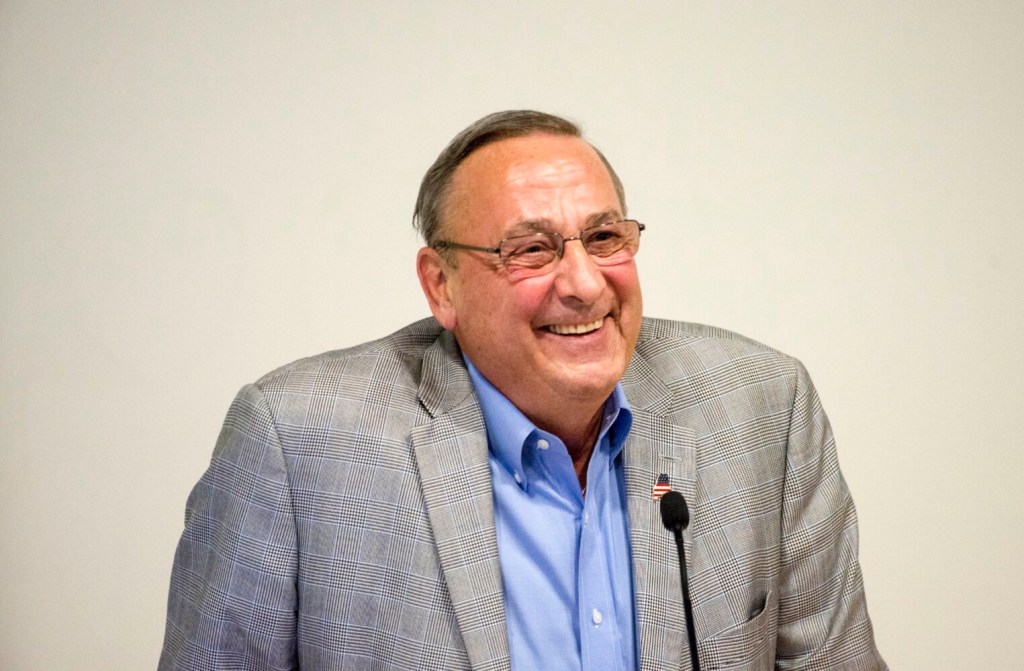
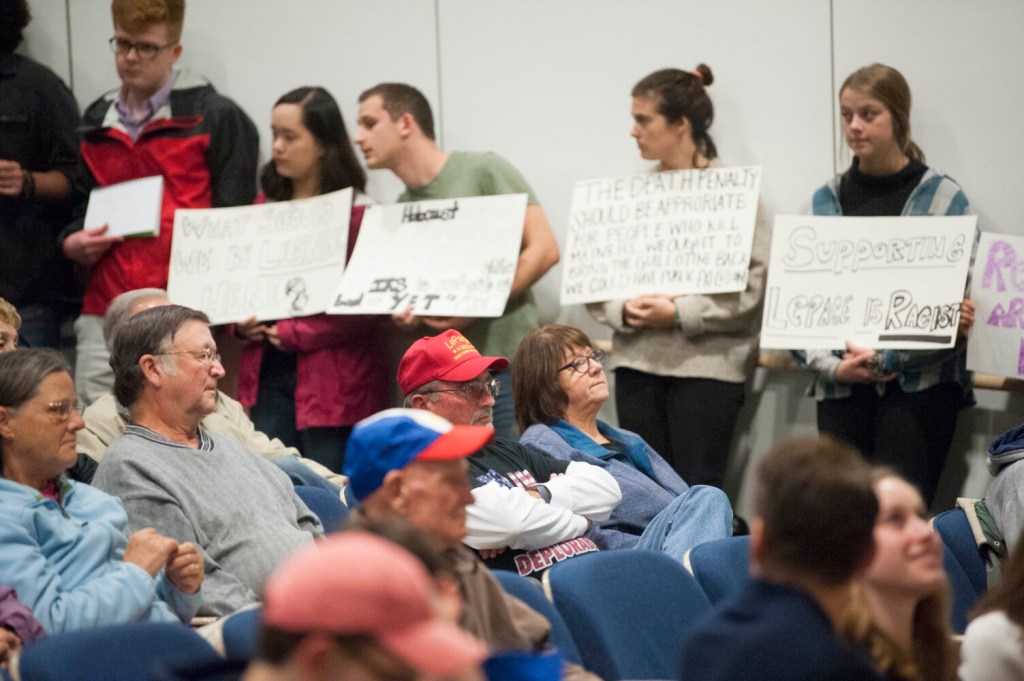

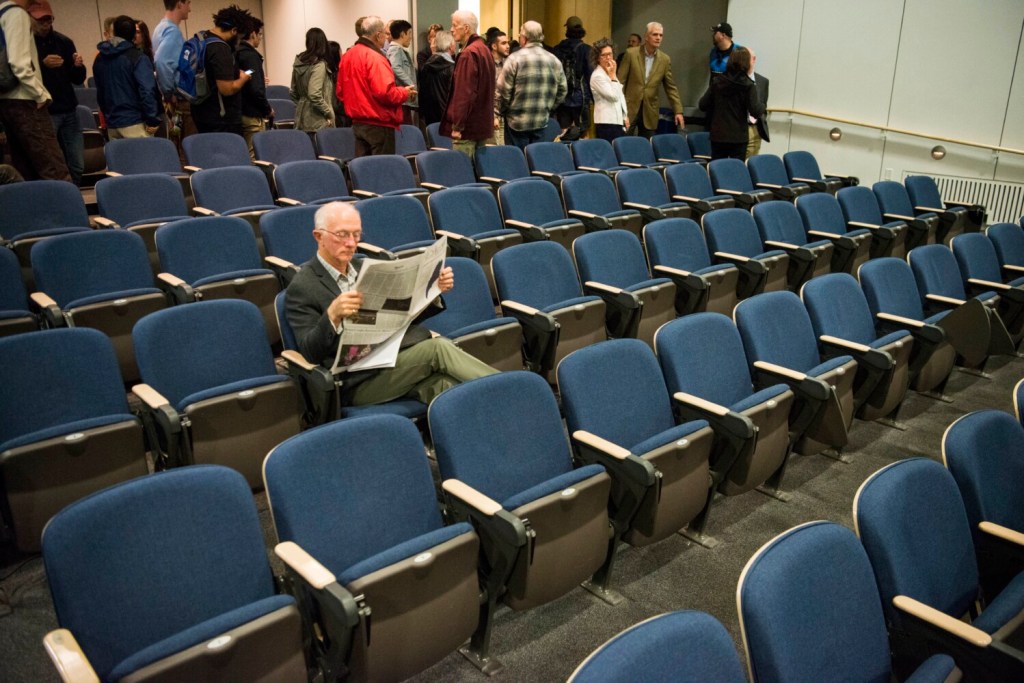
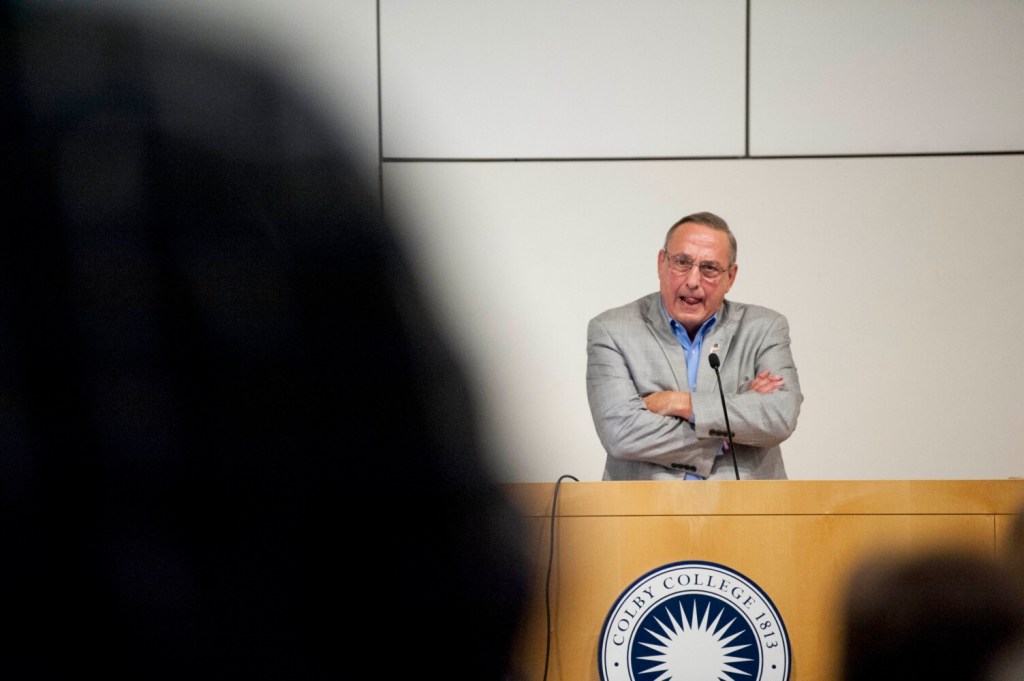
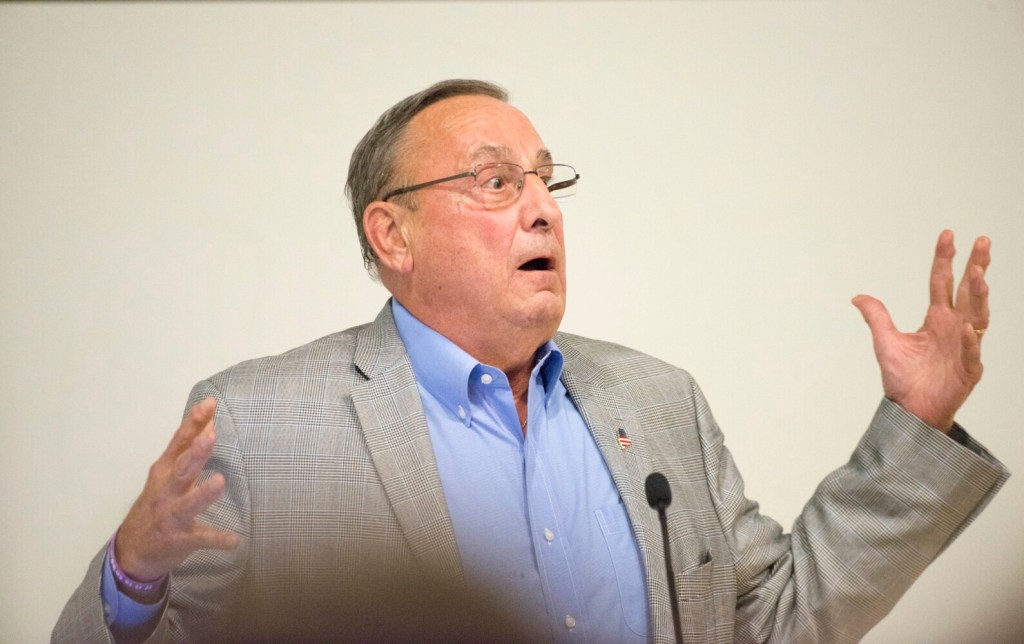
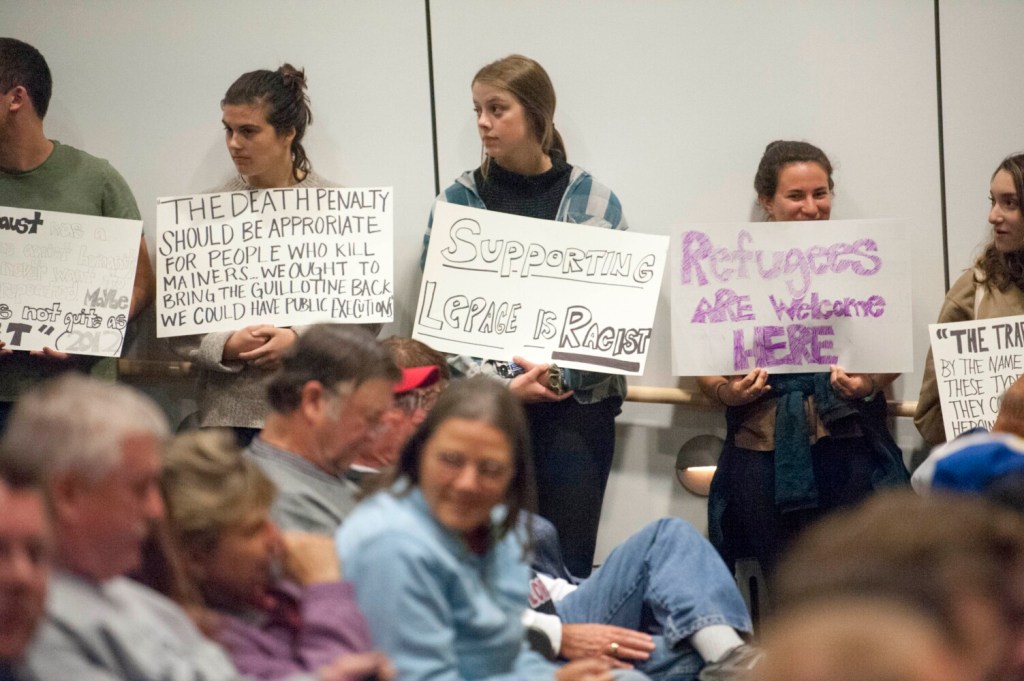
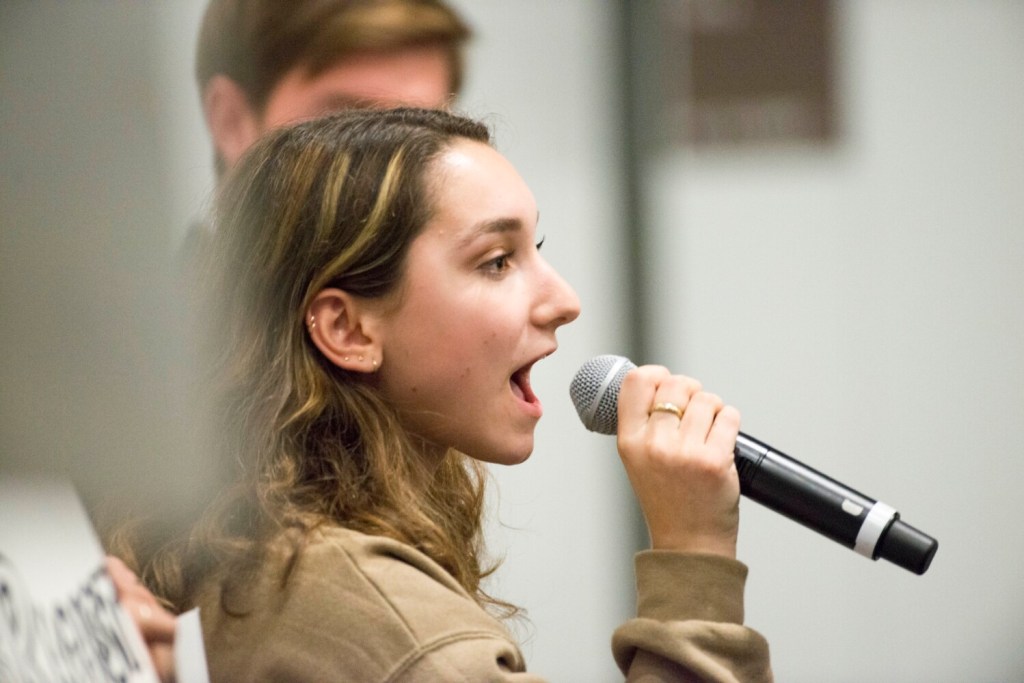
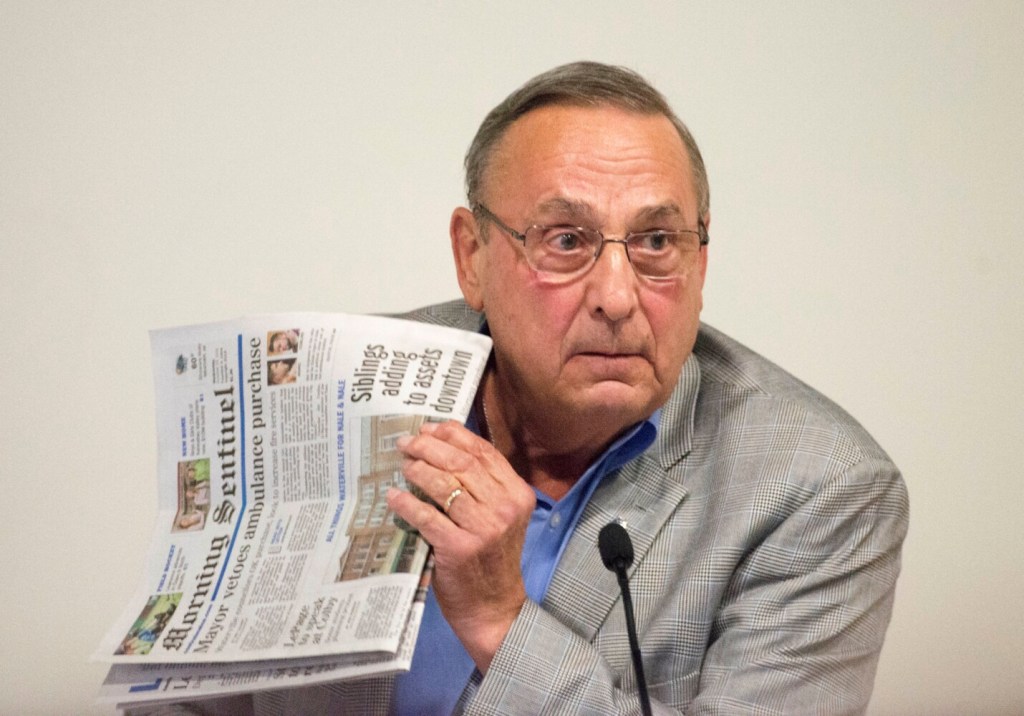

Success. Please wait for the page to reload. If the page does not reload within 5 seconds, please refresh the page.
Enter your email and password to access comments.
Hi, to comment on stories you must . This profile is in addition to your subscription and website login.
Already have a commenting profile? .
Invalid username/password.
Please check your email to confirm and complete your registration.
Only subscribers are eligible to post comments. Please subscribe or login first for digital access. Here’s why.
Use the form below to reset your password. When you've submitted your account email, we will send an email with a reset code.